- Jann Wenner and The Beatles - August 11, 2019
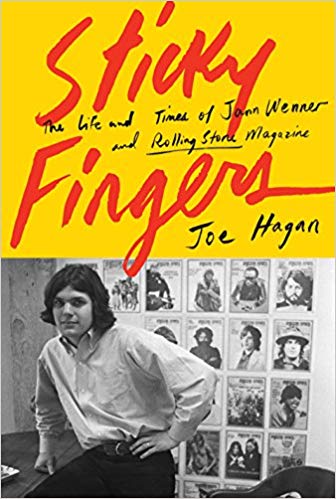
Lately I’ve been starting books and stopping partway through. I get what I want in the part I read, or else I get the general idea and move on. So it was with surprise that I recently found myself finishing what could almost be called a tome—Sticky Fingers: The Life and Times of Jann Wenner and Rolling Stone Magazine by Joe Hagan. It’s a story I knew next to nothing about and it pulled me along like a novel. What will this ambitious, insecure, bold, reckless man do next? I’ll focus here mostly on where Jann crosses paths with our four heroes, or two of them at least. Ringo is mentioned but twice in passing, and George gets only slightly more ink; he’s another in the long list of artists unhappy with their coverage in the magazine.
Wenner worshipped Lennon and put the Beatle’s bespectacled mug on the very first cover of his magazine in November 1967. The whole Beatles band would probably have been more appropriate for the first issue of the iconic magazine of sixties culture. When I think about it now, though, it made sense that Wenner picked just one of them. Wenner himself liked to claim sole credit for group efforts, and over and over he would also prove to have a knack for divide-and-conquer style maneuvering and just plain back-stabbing. As you’ll see below, Lennon himself did not escape this unsavory side of the wunderkind publisher.
Rolling Stone began with Lennon on the cover; Sticky Fingers begins with the sentence, “John Lennon was in a movie theater, crying.” It’s 1970 and he’s driven from LA up to San Francisco with Yoko at Wenner’s request. Wenner wants a big interview. As Wenner and his wife Jane stroll through the city with John and Yoko, they see that Let it Be is playing at a theater, and go in. Hagan writes, “The image of Paul, singing from the rooftop in the final ten minutes, had set [Lennon] off.” Apparently it was the first time John had seen the movie. According to Wenner, Yoko was crying in the theater too, and afterwards all four of them hugged and cried on the sidewalk.
Lennon gave Jann the big interview, which “established Rolling Stone at the center of the culture and made international news,” and also finally put the four-year-old magazine on a sound financial footing. But Jann wanted more; he wanted to put the interview in a book. Lennon nixed this idea repeatedly and in no uncertain terms. Jann did it anyway.
“John took it so badly,” Yoko said. “The fact that Jann betrayed him… [Jann] took the money and not the friendship.” Wenner and Lennon never spoke again.
I can’t help a diversion here, given the recent Dullblog comments on Michael’s Heroin post—though the diversion undermines the argument I have been making in those comments. I was making the case that Lennon was fundamentally ready to move on from the Beatles starting around ’67, and that heroin and Yoko happened to be the way he did it. But it’s almost certainly telling that while Lennon didn’t mind spouting off to Wenner in a magazine interview, he didn’t want his off-the-cuff remarks enshrined in something more permanent, like a book. He knew that what he was saying was not what he truly felt. His tears at seeing the band in Let it Be reinforce this idea. On the other hand, even when we want to say goodbye to something—when we know it’s better to move on—we can still shed tears of appreciation for what we’re leaving behind.
OK, back to the book. After Lennon was shot and Wenner had become the big-shot publisher he’d always dreamed of being, he devoted an entire issue to John, after which Jann and Yoko became best pals again. He was happy to help Yoko shellac the myth.
Then, there’s Paul. Wenner was never too chummy with him, and in Sticky Fingers, Paul is quoted mostly in the form of gripes about Wenner’s bias and favorites, whether Lennon or Bono. Wenner was on the board of the Rock and Roll Hall of Fame, which shamefully shunned Paul after inducting Lennon. In fact, Wenner only got Paul to induct John on the promise that Paul would be inducted the following year. Wenner then pretended he’d never made the promise. If this is true—and it is true to form for the Wenner portrayed here by Hagan—it’s disgusting behavior.
But after all the stories, and all the pages, of Sticky Fingers, the big take-away for me was similar to a point Michael made in a recent post about history as necessarily told through a particular lens. It’s the same with culture (I discuss this in more detail in a blog post of my own.); Rolling Stone, no matter how glossy the pages or hard-hitting the journalism, is just another lens. This particular lens showed us some great stuff—and was also polished by a man with a hole in the middle of his soul.
Has anyone else read the book? What did you think?
Media Mentioned in This Post:
Sticky Fingers: The Life and Times of Jann Wenner and Rolling Stone
Let It Be
Lennon Remembers
(If you purchase via these links, Mike receives a small kickback from Amazon, which helps pay for the upkeep of the site.)

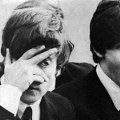
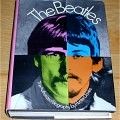


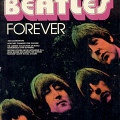
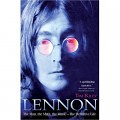

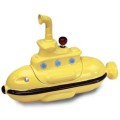
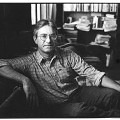
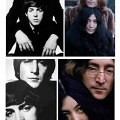
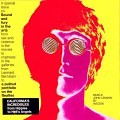
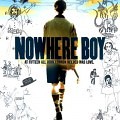
Brilliant writing Chris. What a line to close a review:
“Rolling Stone, no matter how glossy the pages or hard-hitting the journalism, is just another lens. This particular lens showed us some great stuff—and was also polished by a man with a hole in the middle of his soul.”
Wow.
No response is worth to follow a paragraph like that.
Yet I could not resist to respond to your questions: Has anyone else read the book? What did you think?
I read it and I love ‘Sticky Fingers’.
‘Sticky Fingers’ is for me a document to find out what the source and dynamics are that allowed for the views, lies and facts that took a lot of fans by the throat, in a way that determines conversations about The Beatles and John Lennon here today. Oh yes – we could and should have known better.
I agree with you, Chris, it is written very well and ‘Sticky Fingers’ is a fascinating read. I often pick it up to check something minor, and end up reading pages and pages, until my mind hears the calls from real life, and I am able to escape the story or decide to read yet another chapter. Joe Hagan has delivered a well-written piece, a superb biography, he tells a story that takes us away. Wenner obviously made a very good choice, by picking Joe Hagan as the authorized biographer. Once again Wenner showed his prowess as publisher and editor.
I guess the biggest influences of Rolling Stone were
1. the ‘Lennon Remembers’ interview, and
2. secondly the way writers were allowed to reviewed solo work and
3. thirdly the ways they depict the group-dynamics and creativity in the Beatles, without understanding the creative process.
In my view the problem that both ‘Sticky Fingers’ and most Beatles’ fans prove is that almost everybody is talking about something because of the music and nobody has a clue about music. Just really nobody, except for a few. The problem is Mark Lewisohn belongs in the same category. I dare to say that on most blogs and in Rolling Stone we can see the people lack the language to talk about music. All we do is write and talk about ourselves, our preferences. Music is merely the background for a stage-show on which (our) lives play out. This conversation continues today [1] in Rolling Stone and many fan blogs. The conversation is gossip, it is other people talking about the way they perceive and experience other people, whether it is The Beatles, ourselves or others.
‘Sticky Fingers’ shows Wenner was a genius as publisher and editor in chief. ‘Lennon Remembers’ and for that matter ‘Sticky Fingers’ both show how inexperienced and unprofessional Wenner was as a journalist. Recently Robert Rodriguez and Jude Kessler Southerland had a podcast conversation [2] with Ray Connolly (author of ‘Being John Lennon’ and the indispensable ‘The Beatles Archives’) and the difference between the professional craft of interviewing and Wenner’s conversations becomes obvious. As a journalist you are not mouthpiece for the interviewee, you don’t take at face-value what is being conveyed, and there is a huge gap between the tapes and the written interview. Too bad, a lot of journalists are.
Lennon was a guy with toxic and infantile opinions and statements, and as a journalist you have a responsibility to weigh the consequences for everybody involved after the publication. Wenner certainly did not do that in a constructive empathetic manner. Sticky Fingers shows that. For the record, reread Wenner’s last interview with Obama and it is all there, a grown-up man, a publisher, acting like stupid little kid in awe, who has no clue, that he is a fan merely skimming the surface. He does it because it was his ambition and he could make a lot of money with it.
Publishing ‘Lennon Remembers’ as a book, “was nothing less than an infraction of decency and dignity, born out of narcissistic Mr. Jann Wenner’s unlimited lust and greed. Ten years after he quavered in the ‘Foreword’ for ‘The Ballad of John and Yoko’ book (1982):
“I always found it unnerving, sometimes frightening, in various degrees, to be with John and Yoko. (…) The frankness was unnerving; having to handle the trust without any guidelines or rules was frightening.”[3] Indeed he failed, not because the guidelines were not available, but because of the Trumpian-like narcissistic characteristics of Wenner’s personality. ‘Sticky Fingers’ puts it all on display in various situations including Wenner’s private life.
Regardless of what Wenner did or did not do, it is fascinating to see the effect it had on fans, even until today. And it really is not that we could not have known. Last year I wrote a little piece on my blog [4] and started with a quote from my diary, which I wrote when I was a young boy looking for a way to find love (1974) high up in the hills on a mountain farm in Austria:
“An old diary of mine, from way back in the seventies, offers expressions of disappointment about a review unreservedly praising the ‘Lennon Remembers’ interview. The adolescent in my diary plays with lyrics:
“well, dear reviewer it might be you gave ev’rything you had,
but we’re left sitting on our own
you’re treating us
oh so bad, ‘misery’
all I do is hang my head and moan,
about these wasted words
only wasted words
alright, I’ve had enough,
what else can you show me!”
Of course, I was curious and kept buying Rolling Stone, it provided an angle to the world I thought I did not understand yet, and it made me wiser, and I never believed a word what they wrote about music… like Chris writes: it is just another lens.
[1] Geurtsen, Rob (2019). ‘A critique of the Rolling Stone 2016 ’10 Best Beatles Books’ list’. On ‘The Beatles Review of History’, June 19th 2018. Assessed August 2019: https://thebeatleshistoryreview.blogspot.com/2019/06/a-critique-of-rolling-stone-10-best.html?view=magazine . Online.
[2] Connolly, Ray (2019). Being Ray Connolly. On Something About The Beatles, Episode 173, August 6th 2019. Assessed August 2019: http://somethingaboutthebeatles.com/173-ray-connolly. Online.
[3] Cott, Jonathan and Doudna, Christine (editors) (1982). The Ballad of John and Yoko. New York, Rolling Stone Press. Print. p.xii.
[4] Geurtsen, Rob (2018). About books and reviews (6). On ‘The Beatles Review of History’, September 15th 2018. Assessed August 2019: https://thebeatleshistoryreview.blogspot.com/2018/09/about-books-and-reviews-6.html?view=magazine. Online.
Rob, the tale of Sticky Fingers relationship to Wenner is more interesting than it simply being an authorized biography. According to this piece (and I’ve read it other places as well), Hagan was initially authorized, did the interviews and wrote the book, and then Wenner pulled his support after reading the finished manuscript. As readers, we get the benefit of access, but also the important nugget of information that it’s not necessarily the story Wenner wanted to be told. A bit like the Norman Lennon bio, IIRC. But in that case Yoko’s qualms seemed to be less specific than Wenner’s.
.
Or, it could be precisely the story Wenner wants, but “unauthorizing” it protects him socially. That’s possible, too.
.
One other note about Lennon Remembers: such an interview always takes place on the celebrity’s own terms. They control the interaction, simply because you need them more than they need you; sometimes the subjects get “final cut” on the piece — as Lennon probably did in 1970. So the interview isn’t adversarial in the way you suggest. If Wenner had really examined Lennon’s claims vigorously, and had done so in print for the readers of Rolling Stone, that would’ve been the last interview he got, not just with Lennon, but with every other rock star. “Did you see what Jann did to John? I’m not talking to him!” Knowing all this — that interviews in the public press play by the rules of the public press — we must judge for ourselves as readers, applying our own critical thinking. The problem with Lennon Remembers isn’t that John said it, it’s that fans for too long believed it as Holy Writ.
.
Wenner was IHMO too sycophantic in Lennon Remembers — to me, there’s space between how Wenner did it, and how he could’ve done it, while still maintaining the necessary relationship — but I just want to point out that this is a more complex interchange than it might first appear. And that I think the interview, for all its misstatements, flaws, and so forth, is an invaluable source. Not of “truth,” but of who Lennon was as a person, and where he was at that moment, on those subjects.
@Michael, interestingly, I believe Yoko did the same thing with Phillip Norman’s 2008 biography of John: she authorized it, then withdrew authorization before publication. It’s a neat way to make sure the end product say what you want, without being viewed skeptically as the official (whitewashed) account.
Yes, I sneaked that into my comment. And that’s EXACTLY what a control-focused celebrity would do it: control the manuscript, then disavow. In the case of Sticky Fingers, I think Wenner was genuinely pissed; it’s not a very flattering portrait of him. But in the case of Norman’s Lennon, I think it was Yoko wanting to keep her options open.
.
Celebrities are not like you and me. My up-close experiences with them have not been pleasant.
Great piece Chris.
I have not read the book, but I did read this piece in Vanity Fair, written by Hagan, about writing the book. Very insightful.
https://www.vanityfair.com/style/2017/09/jann-wenner-john-lennon-and-the-greatest-rolling-stone-cover-ever
I had a subscription to Rolling Stone for many years, pretty much the entire decade of the 80’s, and I always thought it was the Bible for information.
Only after finding this blog, and reading some of the posts, did I find out about Wenners bias towards Lennon.
Chris, thanks for this. I’d heard the “Lennon Remembers” story before, but not the crying in a movie theater over “Let It Be” part. That’s really telling.
.
Tasmin, thanks for posting that link to the Vanity Fair piece. This quote stands out to me, especially given our recent discussion on the “heroin and the breakup” thread:
.
“And now he was in a face-off with McCartney and determined to win. When Wenner asked why he had hired Allen Klein against McCartney’s wishes, Lennon said, ‘That’s what leaders do. . . . Maneuvering is what it is, let’s not be coy about it,” he went on. “It is a deliberate and thought-out maneuver of how to get a situation the way we want it. That’s how life’s about, isn’t it, is it not?’”
…and Klein, being infinitely more cunning than Lennon, saw that ego and played Lennon like a fiddle. Sad to say.
And I will say, it is odd to view your longtime collaborator and close friend (because whatever John might’ve said, he and Paul were close before 1968) as an adversary to be outflanked. That’s a change, and it’s a strange one.
Michael, in 2017 when Rolling Stone went down the drain and Jann’s son had to sell Rolling Stone, the biography came on the market, and various lovely tales how Wenner and Hagan fell out, were published including in the NYT. The point that I make is twofold: Wenner has a fine ‘fingerspitzen-feel’ for good writers (he always had). Wenner gave access to the archives and gave introductions to make people available for interview – and after a little while Hagan started to go a different track and Wenner lost control and influence. Authorized doesn’t mean the author is has no freedom, and the commissioner is in charge…
.
About the ‘Lennon Remembers’ interview I am not sure what you are trying to convey. Are you countering my argument? My argument is that Wenner’s questioning was adolescent amateurish, e.g. listen to his voice, to his tone and volume. His editing of the transcript or checking the transcript against the tapes, gave him additional influence to set the tone and select those parts that tell the story he as interviewer wants to tell, based on his interview. Again, I am not sure what you are trying to say in response my comment. (???) I was never suggesting Lennon ever was a victim of Wenner’s questioning. Publishing the book though was fraudulent and a cheat. Never again gave Lennon Wenner the opportunity for a conversation. Trust was gone, read the quote again. In 1980 Leibovitz was called in by Yoko and Mintz, not by Lennon.
.
If all this is not convincing please check the conversation with Ray Connolly.
.
On Something About The Beatles, Episode 173, August 6th 2019: http://somethingaboutthebeatles.com/173-ray-connolly. Online.
.
He explains how a journalist can make his/her own decisions. Connolly kept his mouth shut about Lennon’s statement that he wanted to end The Beatles. Connolly explains he has heard so much but will never write about it… to protect people. Good journalism is not only examining the interviewee’s claims vigorously, and publish. I would suggest good journalism is asking the interviewee whether he can prove his shit, his bragging. Been there, done that. Or remain silent when the statements are meant to hurt… like Connolly did, in case of The Beatles. Wenner never was able to do that, he destroyed his magazine with this attitude, remember the university story…? And Connolly delivers a much better resource with ‘The Beatles’ Archive’ and the book ‘Being John Lennon’, than any of Wenner’s Lennon resource.
.
Michael, I am still not sure what is the point you are trying to make?
@Rob, tread carefully. You are — as usual — jumping into comments at the start, and making the thread not about the matter at hand, but conflict between yourself and another commenter. This retards the free exchange of ideas.
.
Sticky Fingers is a book published by an American house, by an American author, on an American subject, so the customs of American book publishing obtain here. “Authorized,” in the American book publishing business, has a specific cultural meaning: that the book was created with the help of the subject (as you note), but also that the subject more-or-less stands behind the version of events and conclusions put forward by the author in the finished book. An authorized biography, during the subject’s lifetime, is halfway to an autobiography. That Sticky Fingers was authorized, then abruptly “un-authorized” tells us something important: that Wenner does not agree with significant parts of the book; if not the facts, then the interpretation; or feels that things were revealed that he did not wish to be revealed. All this is really interesting to keep in mind as one reads, and it adds a layer of texture to the book that would not exist if it were simply “authorized.” Or, as I wrote, “The tale of Sticky Fingers’ relationship to Wenner is more interesting than it simply being an authorized biography.” That statement has nothing to do with your comment, except to make the point that Hagan indeed began as the authorized biographer, but wasn’t when the book was released, and isn’t now. Those who hadn’t read the articles in NYT and elsewhere about Wenner and Hagan’s falling out might’ve been misled by your “Wenner obviously made a very good choice, by picking Joe Hagan as the authorized biographer.” The falling out is, to me, an important detail to know as one reads.
.
I absolutely 1000% agree that Wenner had a wonderful instinct with writers. I’d also say that he had, in his day, a wonderful sense of the zeitgeist (though at a certain point, RS became so big that it was driving the zeitgeist, too).
.
My point about Lennon Remembers is that it took place within a very specific context, and that it’s not really cricket to compare it to, say, Roy Connolly writing 2500 words in The Evening Standard. Two different products, produced in different ways, for different ends. Lennon Remembers was a celebrity profile with a rock star in a quasi-underground music paper which would quite likely make the difference between the paper surviving and not. Wenner knew this, that’s why he wanted it; getting Lennon would make him millions. Lennon knew this, too, and he knew that this precise situation would give him tremendous leverage. He had as close to total control over the finished piece as possible — which is why he gave the interview to Wenner, and not Connolly. He could’ve given the story to anyone, but he chose Wenner because he knew Wenner would not apply “straight” journalistic techniques to it.
.
I haven’t listened to that podcast, but speaking generally, I would not assign too much weight to Connolly’s interpretation of Lennon Remembers, for two reasons: Connolly is also in the Lennon Business, just as Wenner was; like Wenner, he’s selling his version of Lennon as the “real” one. The fact that Lennon gave his major interview to Wenner and not Roy Connolly, was bad for Roy Connolly in 1970, and it’s bad for him now. It is natural that he would work to reduce the authority of that interview. That doesn’t make Lennon Remembers perfect, or Connolly’s opinions on it wrong; I’m just pointing out an obvious bias there.
.
I’m taking your word for it that Connolly feels he would’ve done it differently. That also makes sense. But the difference isn’t necessarily Wenner’s “inexperience and unprofessionalism”; that’s a common critique of the underground press by the so-called “straight press,” but it’s not quite fair. In 1970, Rolling Stone was an above-ground version of the underground press, and much of what made it great then and a useful source now comes from that. Hunter Thompson’s “Gonzo Journalism” was a direct offshoot of the techniques that were happening in the undergrounds, and even before then in magazines like The Realist. Underground journalism assumed subjectivity, not objectivity; wanted to get to the larger truth of a subject, not just the dry facts; was focused on voice and individuality; and specialized in material that was sexual or shocking or somehow “ripped the lid off” the subject. Underground journalism assumed that the straight press had done its job first; that the reader knew all the facts of the situation, and now here was subjective reality. All these traits come through in Lennon Remembers; and I’d argue that they are what makes Lennon Remembers still talked about in 2019, and the innumerable other interviews Lennon did in 1970, not talked about.
.
I don’t recall “the university story” — please remind me — but I would not agree that Wenner “destroyed his magazine” by not applying straight journalism to it. I think the techniques of the underground made Rolling Stone, and then, as its success made it into the straight press, allowed it to establish a set of guidelines which have become the de-facto way celebrities are interviewed today. I think celebrity culture is a blight, but it has certainly served Jann Wenner well, if not the rest of us.
Michael, in the same Vanity Fair excerpt, there’s this:
.
“Being in the Beatles, Ono added, ‘was like cutting [Lennon] down to a smaller size than he is.'”
.
That’s clearly the line Ono and Klein were reinforcing. Did it originate with Lennon, and was simply amplified by them to serve their own ends, or did it come from Ono and/or Klein? Do we know?
I don’t think we do. What we do know is that John never seems to have thought that way before he met Yoko, and that it intensified after he met Klein. I don’t think Lennon’s 1965 depression or post-touring acid ennui is the same as the 1968-onward arrogance that he’s better than the Beatles. Up until then, th Beatles are a part of John, and he acknowledges that, but he’s trying to figure out how those parts fit together, or what he can build with them.
I think this is really key; why are The Beatles suddenly not a part of John? Why are they suddenly Paul’s group? Nobody’s cutting John out or bossing him around; in fact the opposite.
.
And this is where I think you have to look at drug-encouraged paranoia, because there’s just no external cause. The Beatles were the greatest possible platform for anything John might’ve wanted to do, as the Peace Campaign showed; think people would’ve come to the Bed-In if it had been Paul Revere of Paul Revere and the Raiders? And yet, John suddenly thinks of The Beatles as a brake on his ambitions.
This makes total sense. Johns paranoia, due to heroin addiction, made him suspicious of Paul. Of course Klein and Yoko were whispering in his ear how HE was the true genius and leader of the group. He was vulnerable and they exploited that.
Wenner then exploited that vulnerability as well. I’m glad Lennon got back at him in the end, by sending that photo of he and Paul, and also by never speaking to him again.
But why did Yoko forgive Wenner after John died? She knew what a shit he was. Was it just so she could push her version of “John and Yoko”?
John should have listened to Paul. Paul truly loved him. Yoko’s version of love was twisted.
I think to answer why, one first needs to look at when are two stages of the Beatles becoming Paul’s band. The first is around the time of Pepper, after LSD has pacified Lennon in both a positive way (calming his anger) and a negative one (the infamous Lennon lassitude emerging). But John is still all over Pepper, doing “all the little things”; it’s clear that, whatever he said or felt about it in retrospect, he was onboard at the time. The record wouldn’t have happened if John didn’t approve of it.
The second phase is in 1969–even the WA is John’s band. And it’s the paradox of John beginning to announce and believe in 1969 that he is a Great Artist who cannot be constrained by the stupid Beatles, while simultaneously producing less great art, that marks the end. After all, the Beatles were his group. So for them to be a yoke on his back, he has to disown part of himself—by disowning his greatest creation ever. This is a very weird and sad type of splitting, to my eyes.
This ties back to my last post, but I think the why has something to do with John’s nearly suicidal anger after India, his susceptibility to believing what unsavory people told him after LSD and no Epstein and the malleability and rawness of his psyche on heroin.
“The record wouldn’t have happened if John didn’t approve of it.”
This is the KEY thing about the whole “Pepper-as-Paul’s-baby” idea. It was Paul’s baby in lots of ways, but if Lennon hadn’t been 100% behind it, and behind the group, it wouldn’t have happened.
.
I’ve long believed, and said so on this site, that if Brian had lived, The Beatles would’ve continued. Because Brian would’ve helped Lennon find a way to continue to grow, to be fully himself, without needing to disown his greatest creation. It was all such terrible luck. You know there was that “In His Own Write” play at the Old Vic in 1968; that was almost certainly something that was in the works before Brian died. Then there’s Brian’s plans for the Savoy…
.
Brian was beginning to map out some interesting territory, high-art territory. Lennon could’ve made the transition he craved without having to do the tired avant-garde thing of dissing the squares.
.
In leaving the Beatles, Lennon was leaving himself, and thus reinforcing his primary trauma of abandonment. And all the jackals were encouraging him to do it, because a bereft and angry Lennon was a person who could be picked clean.
Michael, everything you say confirms my sense (also expressed earlier on this blog) that Brian Epstein’s death destabilized the Lennon/McCartney dynamic because there was no one left to be the “adult” gatekeeper/planner and free the band — but especially Lennon and McCartney — to focus more purely on creativity.
.
My read is that after Epstein’s death McCartney tried to fill that role and Lennon resented it even though he didn’t really want to fill it. And that made the Ono/Klein line about needing to maneuver in a cunning way attractive to Lennon, at least for a time.
Until we unearth Lennon saying something like that before the appearance of Yoko Ono — and I’ve never read that, or don’t remember reading that — I think it’s fair to attribute that line of thinking to her. Not that Lennon was forced to believe anything.
“Wenner himself liked to claim sole credit for group efforts, and over and over he would also prove to have a knack for divide-and-conquer style maneuvering and just plain back-stabbing.”
This sounds like a description of our current President. I’m not sure I have the stomach to read the book right now.
I just feel bad that John was manipulated by Yoko, Klein and Wenner, and wasn’t in a state where he could think rationally, and realize that Paul had his back, and always had. All 3 of those people were jealous of John and Paul’s relationship, and did their damndest to break them apart.
@Tasmin, please remember that any mega-celebrity attracts bad actors — flatters and users who want to take their money, who want to leverage their fame. This is to be expected. Before 1968, Lennon had Brian Epstein manning the doors to him; nobody got past Brian. For example, some time in the middle Sixties some heavy-duty bad apples called The Process Church tried to get close to The Beatles, and Brian shut that shit down. After Brian’s death, all sorts of hangers-on attached themselves to Lennon; from Magic Alex to Yoko to God knows who. And it wore him down. When you’re really rich, the one thing you can’t buy is people who really love you.
.
I’ve read the biography, and will report on it soon; but Hagan’s Wenner is not an easy person to be with. I had to put the book down several times, to take a break from him. Now, one could say that you can’t achieve great things without a personality broken in the precise way necessary to drive you. But I am a romantic and say that you can do great things — found great bands, found great magazines — without being a jerk.
@Michael G., I had to take a break from Wenner too, even in book form.
I agree you can absolutely do great things without being a jerk. But the media in general is a lot more interested in the jerks. So we have the pleasure of hearing more about them.
Very interesting to hear that Wenner may have been unhappy with Hagan’s final product. I’m not surprised. I spent the whole book thinking, “Wow,I guess Wenner changed and has kind of taken sober stock of his life and behavior if he’s endorsing/encouraging/allowing this all to be written.” Now I’m thinking, “Maybe not.”
I thought Hagan did a good, even-handed job given the guy whose portrait he was painting. I liked that several times, when all he had to go on were Wenner’s version of events and someone else’s, Hagan didn’t impose his opinion or try to artificially knit together some “likely” version. He simply presented the two versions. I wish more non-fiction writers would do that instead of playing God.
This from Michael G;
“In leaving the Beatles, Lennon was leaving himself, and thus reinforcing his primary trauma of abandonment. And all the jackals were encouraging him to do it, because a bereft and angry Lennon was a person who could be picked clean.”
And this from Nancy;
“My read is that after Epstein’s death McCartney tried to fill that role and Lennon resented it even though he didn’t really want to fill it. And that made the Ono/Klein line about needing to maneuver in a cunning way attractive to Lennon, at least for a time.”
This is why I love this blog.
@Tasmin, I agree. What a treat to have these smart, informed, insightful discussions about a subject so dear to my heart and so unprecedented and beautiful a phenomena as The Beatles.
And the cases made for the power of the influence of Yoko, in particular, are indeed strong. I do think it should be kept in mind that John needed prodding–if memory serves–for the projects after Revolver. Paul had to come up with the idea for Pepper and get John in to London to participate. Yes, Lennon wrote songs and participated, but what would have happened without Paul’s concept, example, and coaxing? Same for Magical Mystery Tour. It was all Paul’s idea. Then it was George who got John to go to India, which birthed The White Album. I wonder how or whether Pepper, Magical Mystery, or the WA would have gone without Paul & George making things happen.
And it also seems there was an authentic urge on Lennon’s part to get at something real and raw inside him–something that was at odds with the prettiness and production that Paul reveled in. Lennon’s urge to make raw, rocking music on Abbey Rd., and then his exploration of primal scream reflect that urge. He did seem to feel that something deeper he needed was not being addressed by what The Beatles were doing.
Chris, well said that “there was an authentic urge on Lennon’s part to get at something real and raw inside him.” I think what would have helped him most was therapy — not just the short-term primal scream stuff he did, but some ongoing work with someone who could help him come to terms with his past and his pain. If only . . . .
.
I see Lennon’s flight from the Beatles as in line with what those in 12-step programs sometimes call a “geographic cure.” He might have decided to leave the band at some point, but leaving it as he did feels like an act of desperation that didn’t pan out.
.
One thing I’ve come to believe about McCartney is that he processes his deepest feelings through the kind of “prettiness and production” you mention. Jayson Greene’s review of the Ram reissue on the Pitchfork site is especially smart about this, IMO.
I somehow missed this amazing discussion until now – and I’m so glad to have discovered this blog!
Nancy, your comment about McCartney as well as Michael G’s about the Stones and blues brings to mind a book I just read, “Truant Boy: Art, Authenticity and Paul McCartney” by Martin Shough.
Thanks, Laura — I’ll have to check that book out! One of the great things about this blog is the reading recommendations.
I still don’t see any evidence that being in the Beatles was incompatible with making whatever music John wanted to make. The group had shown they could make ANY type of music they wanted to make. Indian, avant-garde, classical, rock and roll. Everyone on that team was open to anything. That just can’t be the real issue—but I don’t doubt, Chris, that at some point John truly believed it was. The question is, how did he lose sight of that possibility.
Another thought: it usually goes uncommented that the most adventurous music John made was pre-Yoko. The White Album onward show that John was perfectly free to make raw rock and roll within the Beatles. It’s after he goes solo and after POB that John’s recordings start drowning in overproduction—not in the Beatles.
For me, one of the saddest and most striking things about Lennon after 1967 is how he is an artistic follower, rather than a leader. His art is shallow and derivative; his politics fairly standard New Left posturing; and his music — well, even lesser Lennon is great, but…
Prior to the white album, the idea that John Lennon would look to other people in the music business as to what was real, raw, or authentic, strikes me is absurd. He could be influenced by someone, like Dylan, but there’s no mistaking Help! for a Dylan tune. Saddest thing to me about Lennon’s deterioration and 68 and 69 and 70, is his weird new belief that Beatles music —what he had co-invented, and turned into the most popular form around—was somehow less authentic than, say, the blues. Middle class white men from England can certainly play the blues wonderfully, but it is not authentic to them. And then add in the ersatz rebellion of a group like the stones… It’s the opposite of real and raw and authentic, and anybody not on smack can see that.“Getting back to basics“ after pepper really means, “I’m insecure about my musicianship as regards to McCartney, so let’s Do what makes me feel less insecure.” Obviously this is taking place within a larger post psychedelic cultural shift, but, for example, could you imagine John Lennon sitting in with the stones for a public gig in 1965 or 66 or even 67? Whereas in 68 and 69 and 70, it’s like he’s working from the inside to try to convince people that the Beatles aren’t all that. Today, with the benefit of hindsight, we can see that Strawberry Fields forever is probably as authentic to Lennon as Anything he wrote in his entire career. But he couldn’t see that, because After India, Lennon becomes a follower of fashion, not a setter of it — and with the exception of POB inspiring introspective singer/songwriters, Lennon remained a follower for the rest of his life.
And POB uses more production “tricks” on John’s voice than any other record post-1967. He’s flanged, manually double tracked, artificially double tracked, overrecorded, echoed, reverbed—all to serve the song and not simply because it sounds like Elvis. Every instrument on that album is very painstakingly and precisely recorded to suit its intended emotional purpose. Outtakes of Mother show that there was an electric guitar played by John that was *deleted*—so overdubbing wasn’t verboten. The songs were just being carefully considered and technology was used/manipulated to achieved desired ends. Just like Pepper.
The White Album could have been based around a long, disturbing, terrifying song about revolution, but before 1968, John would have welcomed Paul’s and George Martin’s input, not an artist who disdained rock music and complexity, and he wouldn’t have written it as a blues. Both of those things are crucial. There’s no need for the Beatles to record a blues, and there’s only so much one can do with it if one isn’t Hendrix. It’s always sad to me that the Stones’ songs “about” 1968 are more original (Street Fighting Man, Sympathy) from a sonic/musical/arrangement perspective than John’s.
“It’s always sad to me that the Stones’ songs “about” 1968 are more original (Street Fighting Man, Sympathy) from a sonic/musical/arrangement perspective than John’s.”
YES EXACTLY. I love those songs (honestly pretty much the only Stones that I can say I *love*) because they are simply great grooves, and powerful historical documents. Compared to them, “Revolution” is a meek little “me, too! or maybe not.” That Stones single epitomized that time in the way Pepper epitomizes the Summer of Love. And that juxtaposition right there is why I can never truly like The Rolling Stones, or even get fully onboard with them as the second greatest rock band.
.
At heart, the Stones are liars; the world they create in their art is reality diminished. Who, in all of history, had more opportunity to say something, and said less, than the Rolling fucking Stones? There simply isn’t much to them. Compare that to The Beatles who without meaning to basically created a coherent life philosophy, from “She Loves You” to “The End.” In the hands of Mick & co., rock is a truly reductive, almost reactionary force–and who needs that? I mean, Jesus. It takes a special group of assholes to have the lives the Stones have lived — to win that cosmic lottery–and remain basically unchanged. There’s something fundamentally stunted about their art, something curdled and small.
.
It speaks volumes that the Beatles were in tune with a time of optimism, possibility, and connection, and the Stones vibed with pessimism, nihilism, and alienation. The Beatles, at their height, are a pot/LSD band–ambassadors of euphoria and exploration; The Stones, at their height, are alcohol and opioids–meanness and retreat. To see Lennon actively choosing that–the whole Robert Frasier/Stones/heroin/petit-Satanism bullshit–is just disgusting. You can’t blame the Stones, they weren’t and aren’t tuned into anything more than materialism; but Lennon knew better.
He may have simply been petering out musically, unable to write the way he used to. Dylan has said repeatedly that he stopped being able to do what he did on Highway 61 and Blonde on Blonde, when the material came to him, a gift from the unconscious or the muse or God–whatever word you want to use. He had to find a different way of doing it. Most of the greats, including Paul, had their peak times. Mick and Keith in the late sixties. Townsend, Knopfler, Van Morrison, Elvis Costello. None of them improved after a certain pretty young point. Lennon would hardly be alone on such an arc. If he sensed fewer visits from the muse, this would contribute to a sense of insecurity. Was my success a fluke, a lightning strike? Who am I without that?
I think you’re onto something here.
I agree with this. It takes a certain kind of lightning to strike IN ADDITION to being gifted in order to write songs. John was red hot from late 1963 through 1967, which is actually a pretty long stretch. And even before Yoko showed up, his art relied on direct experience more than Paul, and he didn’t think of himself as a craftsman in a musically noble way, the way Paul Simon or Pete Townshend did. I know I read something once that he told a friend in the seventies (photographer Bob Gruen, maybe?) that it was hard to write songs knowing he’d written A Day in the Life. I can understand that, and your comment makes me wonder if some of the I’m An Artist bullshit isn’t a cover for fearing or knowing he couldn’t come up with songs like that again.
I wouldn’t be surprised if Paul struggled with that too and if the weed allowed him to keep coming up with new ideas without censoring himself (“damn, that’s not as good as Getting Better”) before he even got going.
Also: heavy meditation changes your brain. The mechanism of sublimating old trauma via songwriting is a delicate one.
.
I think John’s meditation experiences were fundamental to all the issues we’ve been discussing, but the reason I think that is personal experiences. Of the kinds of things that are just damn hard to express in a blog post.
Fascinating discussion guys. I’ll be without a laptop – and often Internet full stop – for the next two and a half weeks so won’t be able to write the long comments I’d like, but for now I’ll just say that I don’t see much of a decline in Lennon’s songwriting in 1968 and 1969, and I certainly can’t agree that he wrote better songs in 1963. I’ll grant that Let it Be is an awful album for him, but then he only contributed four songs to Pepper, just two of which represent his full talent. Whereas on White you get I’m So Tired, Warm Gun, Yer Blues (which I’d argue is several steps above your average English blues), Sexy Sadie, Me and My Monkey…while on Abbey Road you get I Want You (blues-based but breaks the genre wide open), Because, Sun King, Mustard/Polythene…
.
I know 1967 is also the year of Walrus and Strawberry Fields, but then 1968 is also the year of melodies that John would draw on for years to come. And while he swung towards hard rock and blues to an extent, most of the songs I’ve listed don’t fit either category, and some are sublime. Although his rhetoric said rock was nothing but Chuck Berry, he was so talented that the Becauses, Across the Universes and eventually #9 Dreams kept pushing through in spite of himself.
He was a very instinctive songwriter. Not a craftsman like Paul.
Yes, @Michael B, that makes sense: the “I’m An Artist” becomes a conscious, forced thing to try bluster through the lack of inspiration. The Artist, unfortunately, makes sucky art.
And I think you’re spot on, @Michael G. about sublimation into art being a delicate–and mysterious–affair. I often wondered whether all my therapy and journal writing was taking the place of some potential art. I do less of that stuff now and more art, but the art is different than what would have come out of angst.
I’m sure you’ve heard Paul claim that when he and John got together to write in the early days, they ALWAYS came out of their sessions with a finished song. In about three hours or so. How amazing would it be to see footage of those sessions. I think that’s where I’d most want to be a fly on the wall.
@Michael G., please do try! The more we talk about these issues, the more I’m convinced that something happened in India, but not having experience with meditation, I couldn’t really guess what that was.
I do think John was sublimating trauma via songwriting from the very beginning. So many of those early Beatles songs were about reunification/coming home/unconditional love/emotional availability/complete dependability, which might seem weird coming from the young, angry, defensive John Lennon until you realize that they were probably all forms of wish fulfillment, and that that well ran so deep it could be mined endlessly.
I strongly suspect that actually starting to confront and possibly even name some of his traumas/demons by spending time alone with them in India shifted his mental frame.
https://screenrant.com/music-movie-biopics-upcoming/
If this movie project is proceeding with the blessing of John’s widow, it will be a big screen version of the official John&Yoko story. One factually-incorrect movie (nowadays) is worth a thousand well-researched books.
Sam, agree 100%. I have zero interest in a big-screen adaptation of The Revised Standard Version of the Ballad of John and Yoko, and if Ono’s signing off on it, it’s almost certain to be just that.
Agree, Nancy. I can’t imagine what that would look like. About the only thing accurate in Bohemian Rhapsody was that Freddie Mercury was in a band called Queen.
I actually was really looking forward to Bohemian Rhapsody, knowing a smidgeon about Freddie Mercury, and found the screenplay actually laughably clumsy. All the nuance in Freddie’s life and relationships was bleached out, and if I were a gay man, I would’ve been especially pissed off. The guy playing Freddie was compulsively watchable, but the story structure, character arcs, and dialogue were just…painfully poor.
.
If it is made, it will be a hard pass.
https://deadline.com/2018/10/john-lennon-yoko-ono-movie-jean-marc-vallee-universal-pictures-love-story-movie-the-beatles-michael-deluca-anthony-mccarten-1202487835/
The quote I found most quote interesting; J&Y bonding in the midst of the turbulence of the Beatles breakup. It’s as if they were two passive bystanders staring helplessly while the breakup blew over them like a tornado.
And odds are that a good number of viewers will take this film as gospel. Sigh.
Movies. The modern myths. Half-history, half-dream.
[…] Jann Wenner and The Beatles August 11, 2019 […]
Not technical, so am struggling with your url copy/paste and getting all of it, correct one.
I love this blog, intelligent comments and articles with interesting subjects, ideas on Beatles. As to what happened to John in India, suggesting online series understanding Lennon McCartney, as in India men separated from women, John and Paul close till then, Paul leaves first fairly soon afterwards brings in Linda, then John yoko, finally paul marriage to linda, then John to yoko. Also, after heavy drug use, John probably cold turn from other drugs on before. This is my third try for comment, or will have to read only.